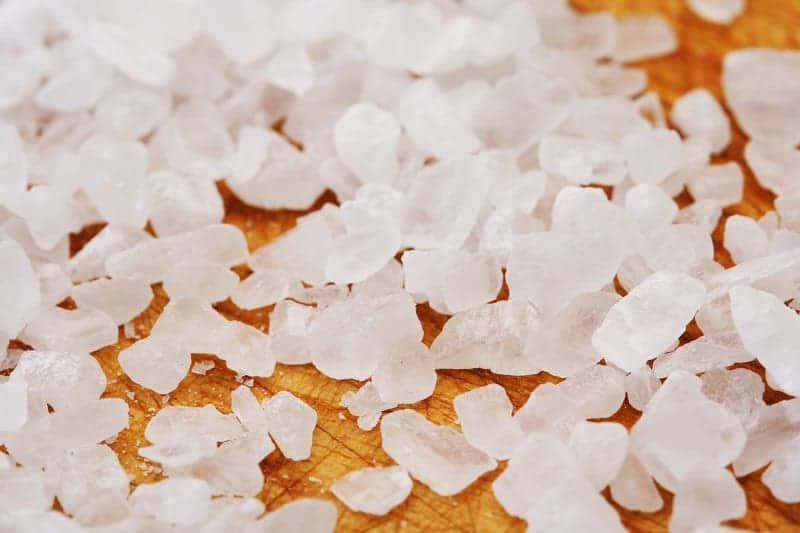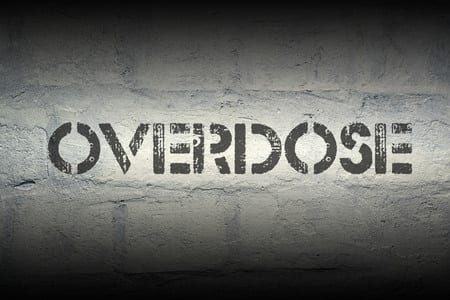It was in 2002 that late songstress Whitney Houston used the now-infamous phrase “crack is whack” in response to allegations that she was addicted to the substance. Out of context, it sounds like Houston had created a ready-made anti-drug slogan against crack cocaine addiction. But in actuality, she was making a haughty claim about her choice of drug. The full context of the quote goes like this: “Let’s get one thing straight: Crack is cheap. I make too much money to ever smoke crack… We don’t do crack. We don’t do that. Crack is whack.” We know now what we only suspected then: Houston’s sentiment wasn’t that crack was bad because it was a drug and she was addicted to it. Her statement was that crack was a cheap drug, and she was proudly doing more expensive ones. This is a sad context to put this quote in now. Roughly 10 years after that interview, Houston was found dead in a bathtub in her hotel room at the age of 48. Less than three years later, her daughter Bobbi Kristina was found comatose in exactly the same way in her home and would die six months later at age 22. At the time Houston said “crack is whack,” she was in the height of addiction, and was proudly flaunting her denial on national television. And because she didn’t get help, her life, and even her daughter’s life were snuffed out decades early. And while Houston may have made “too much money to ever smoke crack,” its affordability and accessibility make it a drug of choice for lots of people who aren’t international millionaire superstars. Here’s why crack really is whack – but not for the reasons Houston said and excusing the decades-old slang.
What is Crack, and How is it Different From Cocaine?
Crack cocaine is, just as the name implies, a form of cocaine. While cocaine is mostly seen as a white powder that gets snorted through the nose, crack is a form of cocaine that has been processed into a small crystalline rock. Rather than snort or inject the cocaine, crack allows users to smoke the drug by heating the crystal and inhaling the resulting vapors. The crystal makes a crackling sound when heated, which is where the drug gets the name “crack.” Crack cocaine is the most potent form of cocaine, yet it is also the cheapest. But greater potency doesn’t mean it’s of a higher quality – it means it’s a great deal riskier to take. Smoking crack means inhaling vapors, and those vapors reach and affect the brain almost instantly. It’s a much more intense, and more immediate high than other forms of cocaine, generally lasting about 15 minutes. However, that intensity also wears off very quickly, and this is what makes crack one of the most destructive drug habits in existence. Cocaine in any form is a drug that users tend to binge on, in an attempt to maintain their high. But crack is unique in that its high lasts only a matter of minutes. That means those who are addicted to crack are stuck in an almost-constant cycle of trying to maintain that high. They may disappear every 10-20 minutes or so to smoke more, regardless of what’s going on around them. And because crack cocaine requires near-constant use to maintain a high, its usage becomes expensive not because of price, but because of volume. Crack becomes addictive to a user extremely quickly, often after the first use. And once crack has you addicted, it is almost impossible to lead a normal life. More than almost any other drug, crack addiction is all-consuming. It takes a lot of time to maintain, and the near-constant use of the drug means its users go through it very quickly, and need to buy more on a regular basis. So its status as a “cheap” drug is a bit deceptive – it can be one of the most expensive drug habits to maintain over a long period of time. 
What are the Effects of Smoking Crack?
Cocaine addiction and crack addiction actually have a lot in common. Crack is a more intense, more rapid version of the same set of effects, but those effects are largely the same. Those symptoms often include:
- nausea
- restlessness
- raised body temperature
- high blood pressure (due to shrinking blood vessels)
- accelerated heart rate
- muscle twitches
In addition to these, there are a number of mental effects, like anxiety, paranoia, and hallucinations associated with smoking crack. Long-term effects often include undernourishment, because crack decreases appetite. It also kills off immune cells, making longtime addicts more susceptible to HIV and hepatitis C. Extended use may lead to movement impairment conditions like Parkinson’s disease. In the short term, cocaine in any form is a stimulant that causes its user to become extremely energetic – sometimes erratically so – as well as highly alert and energetic. Some report an increased ability to focus on simple or repetitive tasks, while others say it has basically the opposite effect. Regardless of its short-term effects, no crack cocaine addicts have reported that it has improved their life or made them healthier in any way. Many crack addicts can no longer report anything, as they’ve become statistics themselves.
What Happens During a Crack Overdose?
Cocaine addiction is particularly conducive to causing overdoses because it is so often binge-used. While some drugs can be used once for an extended high, cocaine wears off quickly and is generally used several times in rapid succession. Crack addicts, in particular, may smoke several times per hour, often in increasing quantities, to maintain a high. When that tendency builds to a certain point, the body can’t manage the toxicity anymore, and the user is liable to have a heart attack, stroke, or seizure. Medical professionals will generally attempt to halt the seizure or limit damage from the heart attack or stroke during treatment. If the overdose is treated early enough, those symptoms may be avoided entirely. If not, well, Mrs. Houston provides us all a cautionary tale of waiting too long to get help. Crack use is as common now as it was when it first gained notoriety in the 1990s, and it has never before been more important to educate addicts about the importance of treatment. 
How is Crack Cocaine – or Any Cocaine – Treated?
A crack addict who finds themselves in drug rehab will get treatment the way any other addict would – individually, and with compassion and respect. It’s impossible to lump “crack addicts” or even “cocaine addicts” in as a single group. People are all different, regardless of their afflictions. One person’s circumstances for smoking crack may be completely different from someone else’s. Understanding those motivations, circumstances, and triggers is key to treating addiction. We’re not treating crack in this situation, we’re treating addiction, through behavioral-cognitive therapy that helps people understand their afflictions and how to manage them in the long run. That means individualized programs that recognize each patient as a single, unique person, not simply a drug classification. Of course, helping to remove the drug’s immediate effect is a major part of rehab, sometimes handled in a detox period, but it’s far from the most important part. The most important part is giving each patient the tools they need to move forward with a clean, healthy, rewarding life. Have you had experience with crack cocaine addiction in the past, or are you looking for help now? Contact us or leave a comment below and tell us about it.

